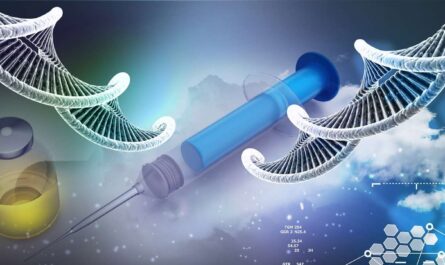Emily Hollenbeck battled with a severe, chronic depression that mirrored a dark abyss, where the heaviness felt so burdensome that she struggled to move. With a history of both her parents succumbing to suicide, she was well aware of the life-threatening nature of her illness. In a daring move, she opted for a groundbreaking therapy involving the implantation of electrodes in her brain.
The innovative treatment, known as deep brain stimulation (DBS), holds the potential to offer relief to the nearly 3 million Americans grappling with treatment-resistant depression. While DBS is already authorized for disorders like Parkinson’s disease and epilepsy, researchers and patients alike anticipate its broader availability for depression in the near future.
DBS involves administering precise electrical impulses to targeted areas of the brain, akin to a pacemaker for neurological functions. Recent studies have shown promising results, although there have been instances of halted progress when large studies failed to demonstrate an advantage of using DBS for depression. In light of this, the Food and Drug Administration has expedited the evaluation of Abbott Laboratories’ request to employ DBS devices for treatment-resistant depression.
Reflecting on her decision to undergo DBS, Hollenbeck expressed initial awe at the intensity of the concept, which essentially involved brain surgery and the embedding of wires in her brain. However, having exhausted all other treatment options and driven by desperation, she resolved to pursue this unconventional therapy. Hollenbeck’s battle with depression traces back to her childhood, marked by spells of homelessness and poverty, with its intensity escalating following her father’s suicide and resurfacing during her stint with Teach for America.
Following the surgery, where electrodes were strategically positioned in her brain’s subcallosal cingulate cortex—an area regulating emotional responses—Hollenbeck noticed a remarkable transformation almost immediately. The continuous low-voltage pulses delivered by the implanted device caused a palpable shift in her mood and behavior, akin to a newfound zest for life. Subsequent to the procedure, she experienced a renewed joy in activities she once found pleasureless, a sentiment she had longed for since her bout with depression.
Despite encountering impediments in early studies of DBS for depression, more recent research has demonstrated sustained relief and substantial response rates among patients. Current investigations are focused on tailoring treatments to individual needs, utilizing advanced imaging techniques to pinpoint precise brain targets for electrode placement. In essence, DBS is heralding a new dawn in the treatment of depression, offering hope and healing to those ensnared by the debilitating grip of the condition.
*Note:
1. Source: Coherent Market Insights, Public sources, Desk research
2. We have leveraged AI tools to mine information and compile it



